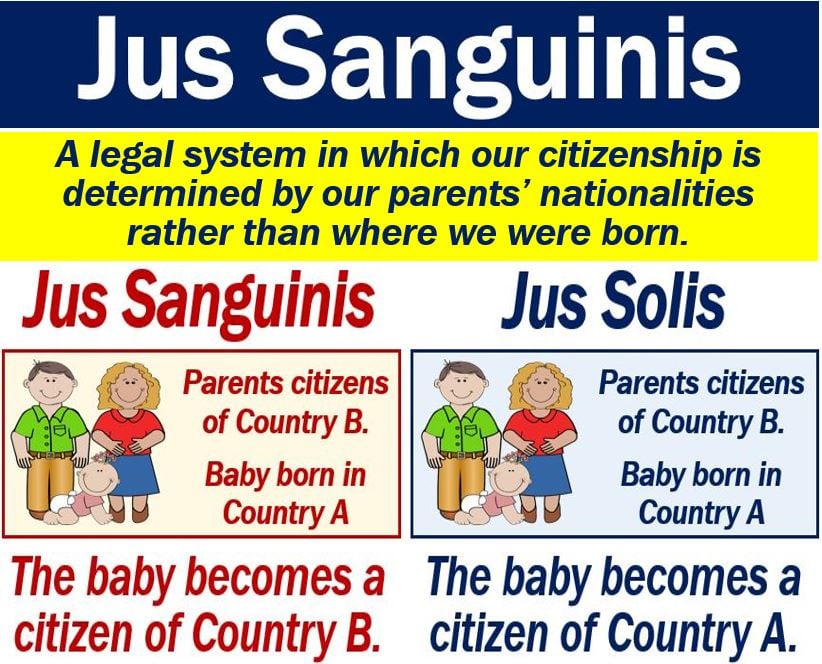Jus sanguinis is a legal system that determines somebody’s nationality according to their parents’ nationality. Jus sanguinis means ‘law of blood.’ In this context, blood means ‘blood relative,’ or more specifically, the person’s parents. A country that follows this legal system does not determine a person’s nationality according to where they were born.
The term contrasts with jus solis. Jus solis is a legal rule that states that where a person was born determines their nationality. Therefore, if you were born in the US or Canada, you are an American or Canadian citizen respectively. Jus solis is Latin for ‘law of soil.’
Wikipedia says the following regarding the term:
“Jus sanguinis (Latin: right of blood) is a principle of nationality law by which citizenship is not determined by place of birth but by having one or both parents who are citizens of the state.”
“Children at birth may automatically be citizens if their parents have state citizenship or national identities of ethnic, cultural, or other origins.”

Varying extents of jus sanguinis
No country has a 100% jus sanguinis or 100% jus soli system. Rather, they have varying mixtures of the two. How they describe themselves depends on which way their mixture sways.
For example, the United States, Canada, and most of the other North and South American countries have a jus solis system.
Europe, on the other hand, has a jus sanguinis system. Even the United Kingdom, where English common law was born, parliament switched the system in 1983.
Jus solis dates back to English common law hundred of years ago. Ireland and Australia have a similar system today to the UK’s.
Jus sanguinis derives from Roman law. Roman law influences the legal systems of continental Europe.
Multi-citizenships
If a nation follows the jus sanguinis system, people inherit their parents’ citizenship. We sometimes use the term ‘right of blood.’
So, what would happen to, for example, John? He was born in Country A, a jus soli country. His father was born in Country B and his mother in Country C. Both Countries A and B have jus sanguini systems.
Theoretically, John could claim citizenship in three different countries.
